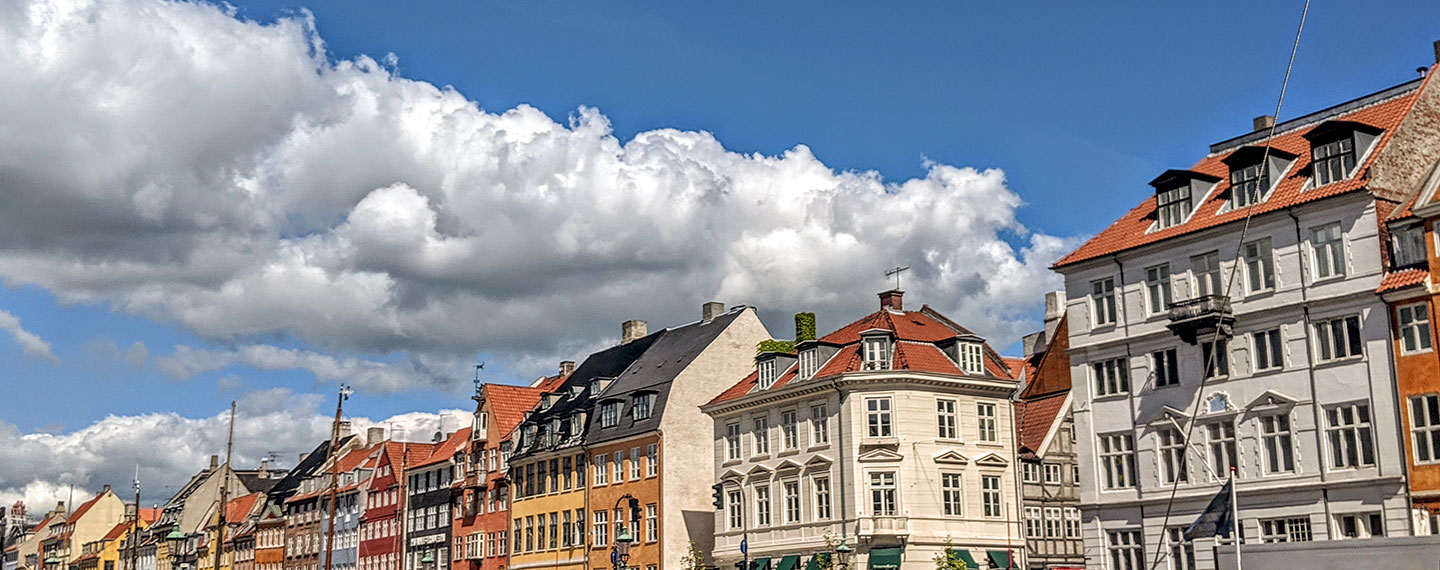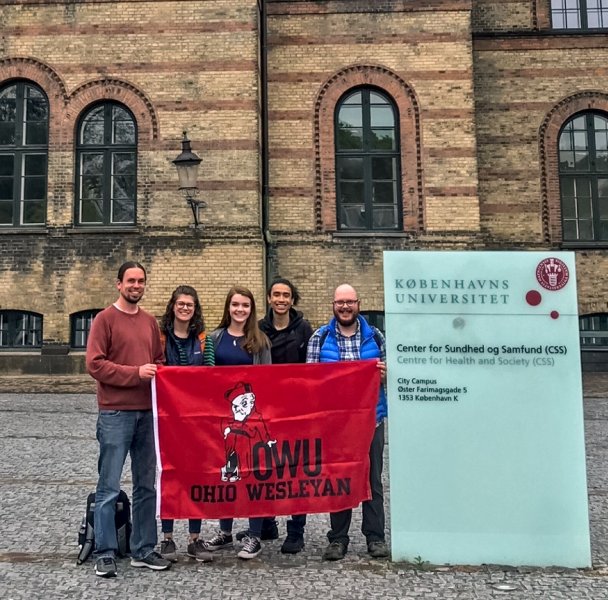From Our Perspective

“As an educator, I could not have dreamed of having such a powerful experience on the trip.”
Seeing new worlds with first-gen students
Sociology & AnthropologyBy Dr. Paul Dean

When I set about to study the American Dream and social mobility with some of my first-generation students, I had no idea it would turn into one of the most meaningful experiences of my professional life.
The heart of the American Dream is the idea that with hard work and a little smarts anyone can achieve their dreams. It is the promise of opportunity — that your class, your race, and your upbringing will not hold you back. Coming from working-class families and being the first in our families to attend college (commonly called first-gens), my students and I knew that it is not simply about hard work. In the United States, there are many hurdles that make it difficult to climb the class ladder.
I’m a sociologist by training, and the primary way that sociologists evaluate such a promise is through researching intergenerational mobility. Researchers consider how a parent’s place in the class hierarchy might be related to their children’s ultimate position in the class hierarchy. In other words, how much does where you start affect where you end up in society?
It turns out that many countries in Europe, especially the Scandinavian countries like Denmark, facilitate mobility much better than the United States. Some mobility researchers say, “If you want the American Dream, then go to Europe.”
My students and I wanted to learn more about what Denmark and the Scandinavian countries do differently and what it might tell us about mobility here. So three students, Associate Dean for Student Engagement Brad Pulcini, and I — all the first in our family to attend or graduate from college — applied for and were awarded a theory-to-practice grant (TPG) through The OWU Connection to study mobility in Denmark.
At the University of Copenhagen, we compared mobility statistics and learned about their flexible labor market and generous social programs that take care of the unemployed. Medical staff who implement and research their universal health care system showed us its impact across society. Denmark isn’t a perfect society, but it was striking for us to see how Danes have built generously funded (through taxes) institutions to support each other and a competitive economy.
Our students also sat down to dinner — and a three-hour conversation — with students in Denmark’s first-ever first-gen student organization. The experience was a little surreal.
Most of our group had never had the opportunity to travel outside of the country before, and now they were dining with a group we had never met from a country we were just getting to know, yet quickly they felt such unity and warmth, sharing very personal stories with each other. The students all talked about feeling out of place in college, expressing doubts of themselves and wondering if it was just them or a result of their circumstances, finding commonalities across vast social and cultural differences. As an educator, I could not have dreamed of having such a powerful experience on the trip.
What made this among the most meaningful experiences of my professional life was that in the context of this educational opportunity to which we all personally related, our group experienced a deep sense of connectedness with one another. Having all come from difficult economic and social backgrounds, we were freed of the judgments that are often placed on poor and working people. We shared things with each other that we had never shared with others before.
We all greatly appreciated every moment. The common identity and experiences and the tremendous personal growth in the context of academic learning all complemented each other to make for a truly wonderful and fulfilling experience.
Claudia Kelly, one of our students on the trip, told me: “Getting to college is a challenge in itself for students whose parents don’t have that experience. It can feel isolating to struggle to understand the system, and often we don’t get involved in campus life as much. This TPG showed us what is possible for students like us.”
---
Dr. Paul Dean is Associate Professor of Sociology & Social Justice and is Chair of the Sociology & Anthropology Department.
